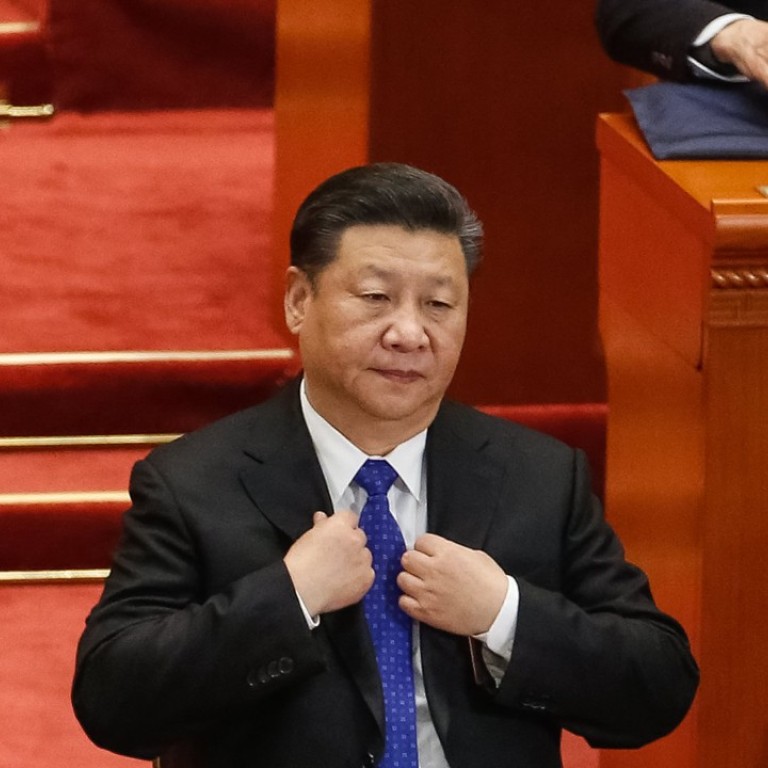
Stronger party must be sensitive to public opinion and well-being of Chinese people
With the abolition of presidential term limits, Xi Jinping has raised fears of dictatorship among some and been praised by others seeking the continuity of a strong leadership, but legitimacy of rule is essential
Never before has the usually dry topic of constitutional change focused world attention like that on China – particularly the removal of a provision that would have prevented Xi Jinping serving as president for longer than two terms. The legislature deleted it with hardly any dissent.
Ironically, there was hardly any dissent either when the term limit was inserted in the constitution in 1982 after Mao Zedong’s long one-man rule. Then it was uncontroversial.
This time the U-turn is far from uncontroversial. The support for it in the National People’s Congress reflects Xi’s unchallenged authority.
Chinese experts have struggled to convince sceptics it is not a backward step without checks and balances on power. The change also leaves the country without a clear mechanism for transition of power. Xi has taken on unparalleled responsibility.
Only real progress in alleviating poverty, environmental protection and engineering sustainable economic growth in the coming years will allay some people’s fears. The timing, as Xi is just beginning what would have been his second five-year term, comes at a critical juncture for his goal of China becoming prosperous, stable and respected with a place at the top table. It reflects a consensus among top party leaders that continuity of strong leadership is paramount.
The constitutional change also further asserts Communist Party supremacy over the state by enshrining party leadership as core to the development of socialism with Chinese characteristics, and sets up the National Supervisory Commission, a super anti-graft body with expanded but more clearly defined powers to provide a legal cover for the investigations of the party’s Central Commission for Discipline Inspection.
The commission will also have jurisdiction over all people in public positions including non-party members. As such it will have a role in applying checks and balances on abuses of power. It is a long way from the Western model of separation of powers, but it is a reminder that China is trying to build its own system.
How Xi’s thinking, or the concept of internal checks and balances plays out, will be closely watched. It calls for strengthening of party building to rid it of corruption and tighten discipline, so it can rule credibly by law according to the constitution that empowers it.
We hear the case for further strengthening the party’s absolute control, while acknowledging concerns about whether the lessons of the past have been forgotten. Dissent implies that the rise of China and more democracy need not be mutually exclusive. But building a stronger party does not necessarily involve crossing the line into dictatorship, let alone that the people are likely to accept it again. These are different times. Sensitivity to public opinion and the well-being of the people is now key to legitimacy and longevity of rule.

